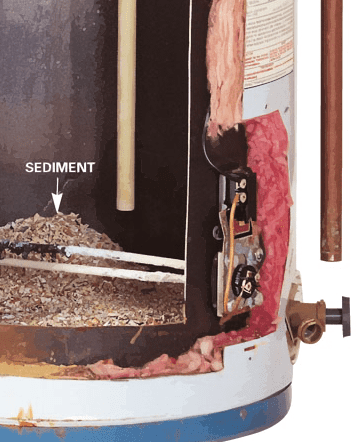Coping with the Routine Hot Water Heater Crisis Events
Coping with the Routine Hot Water Heater Crisis Events
Blog Article
What are your thoughts on The Importance of Water Heater Maintenance?

A water heater is one of the most vital basic appliances that can be located in a residence. With water heaters, you do not require to undergo the stress of home heating water by hand every time there is a need to take a bath, wash, or the recipes. However, there is constantly an opportunity that your hot water heater would break down as with many mechanical devices.
It is necessary to keep in mind any kind of little breakdown as well as tackle it quickly before things get out of hand. Most times, your water heater starts to malfunction when there is a build-up of sediments as a result of continuous usage. As a safety measure, regular flushing of your water heater is suggested to avoid debris accumulation as well as prevent useful failing.
Usual hot water heater emergency situations and also how to deal with them
Too little warm water
It might be that the water heating unit can't support the hot water need for your house. You could update your water heater to one with a larger capacity.
Varying water temperature.
Your water heater might begin producing water of various temperatures generally ice chilly or hot warm. There may be a need to replace either the thermostat or the heating device of your water heater.
Leaky water heater storage tank.
In this circumstance, you need to turn off your water heater, allow it to cool down, and also very carefully look for the resource of the problem. At times, all you need to do is to tighten up a few screws or pipe links in cases of small leaks. If this does not function and also the leak lingers, you might need to employ the solutions of a service technician for an appropriate replacement.
Stained or odiferous water
You need to know if the issue is from the storage tank or the water source when this happens. If there is no funny odor when you run cold water, then you are particular that it is your hot water heater that is defective. The stinky water can be brought on by rust or the accumulation of microorganisms or debris in the hot water heater storage tank. As soon as you discover this, you can attempt flushing out your container or replacing the anode if the problem continues. The function of the anode is to clean out germs from your container. Considering that the anode rod replacement needs a detailed understanding of your water furnace, you will require the aid of an expert.
Conclusion
Some property owners neglect little caution as well as minor faults in their water heater system. This only results in more damages and a possible total breakdown of your home appliance. You ought to handle your hot water heater mistakes as quickly as they come up to prevent more expenditures and also unnecessary emergency troubles.
With water heating units, you do not require to go with the stress and anxiety of heating water by hand every time there is a need to take a bathroom, do the laundry, or the recipes. It might be that the water heater can't support the hot water need for your home. Your water heating unit could start producing water of various temperatures generally ice cool or hot warm. If there is no amusing scent when you run cold water, then you are certain that it is your water heating system that is faulty. The stinky water can be created by corrosion or the buildup of germs or sediments in the water heater container.
Common Water Heater Issues and What You Should Do
What Type of Water Heater Do You Have?
Before we begin it’s first important that you identify the type of water heater you have on your property. There are two main types of water heaters out there: conventional and high efficiency.
Both of these types of products typically use either gas or electricity to heat power. There are also solar water heaters that use a thermal collector on the roof or yard to heat the water.
While these models are not as common, they can cut heating costs in half. In this article, we will focus on conventional and high efficiency.
How Do My Electric and Gas Water Heater Work?
Though they look similar, electric and gas water heaters work very differently. It’s important to know their basic function because often problems can be specific to the heating source.
In the electric model, a thermostat on the side of the machine detects the temperature of the water in the tank. When the temperature needs to rise electricity flows to a heating element suspended in the water.
Gas models also use a thermostat device — typically with a mercury sensor at the tip and an additional sensor called a thermocouple. The thermocouple detects whether the pilot light is on and controls the flow of gas.
When the thermostat drops below the appropriate level gas is released which becomes ignited by the pilot light. The flame heats the bottom of the water tank which causes hot water to rise and cold water to drop.
This natural circulation continues until the water reaches the desired temperature. Then, the thermostat triggers the gas control valve to shut off the flow of gas.
What Are the Most Common Issues and How Do You Fix Them?
https://happyhiller.com/blog/common-water-heater-issues-and-what-you-should-do/

I'm just very intrigued by Is Your Water Heater Leaking? and I really hope you enjoyed the new blog posting. Do you know about another individual who is intrigued by the topic? Why not share it. I truly appreciate reading our article about Is Your Water Heater Leaking?.
24/7 emergency plumbing? Reach out. Report this page